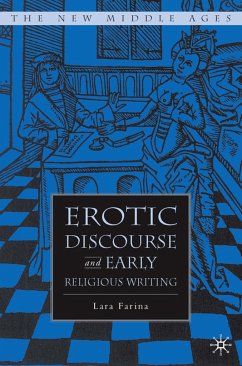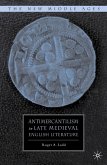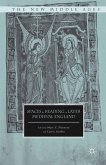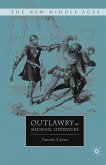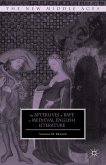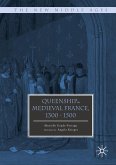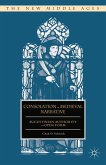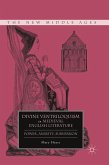Erotic Discourse and Early English Religious Writing discusses the role of sexuality in medieval devotional practice, looking in particular at religious writings circulating in England in the tenth to thirteenth centuries.
Hinweis: Dieser Artikel kann nur an eine deutsche Lieferadresse ausgeliefert werden.
Hinweis: Dieser Artikel kann nur an eine deutsche Lieferadresse ausgeliefert werden.
'Erotic Discourse and Early English Religious Writing should become regular reading for scholars of any of the fields it touches upon, and we can only anticipate with delight further studies from Dr. Farina.' - Studies in Medieval and Renaissance Training
"This concise, engaging book examines the erotic dimension of medieval religious texts through a consideration of the physical and social situations of enclosed readers . . . it moves confidently between different realms of inquiry , bringing modern theoretical perspectives into conversation with medieval texts and their historical situations . . . In the links she makes between works not often read together, her thoughtful and comprehensive contextualization of them (both in the text and in the notes), and the broad and inclusive understanding she offers of readers' desires in medieval England, Farina has given us a book that is 'fructuous, and that in litel space.'" - Speculum"Farina's book makes a valuable contribution to the study of early medieval sexuality - especially in Anglo-Saxon England. Most importantly, the real value of Farina's book is in her excavation of the structures of the spatialized embodiments of affective reading practices - how, in the intersections of 'real' and 'imagined' spaces, the body is always, even when reading, somehow in motion" - Sixteenth Century Journal
"This concise, engaging book examines the erotic dimension of medieval religious texts through a consideration of the physical and social situations of enclosed readers . . . it moves confidently between different realms of inquiry , bringing modern theoretical perspectives into conversation with medieval texts and their historical situations . . . In the links she makes between works not often read together, her thoughtful and comprehensive contextualization of them (both in the text and in the notes), and the broad and inclusive understanding she offers of readers' desires in medieval England, Farina has given us a book that is 'fructuous, and that in litel space.'" - Speculum"Farina's book makes a valuable contribution to the study of early medieval sexuality - especially in Anglo-Saxon England. Most importantly, the real value of Farina's book is in her excavation of the structures of the spatialized embodiments of affective reading practices - how, in the intersections of 'real' and 'imagined' spaces, the body is always, even when reading, somehow in motion" - Sixteenth Century Journal

